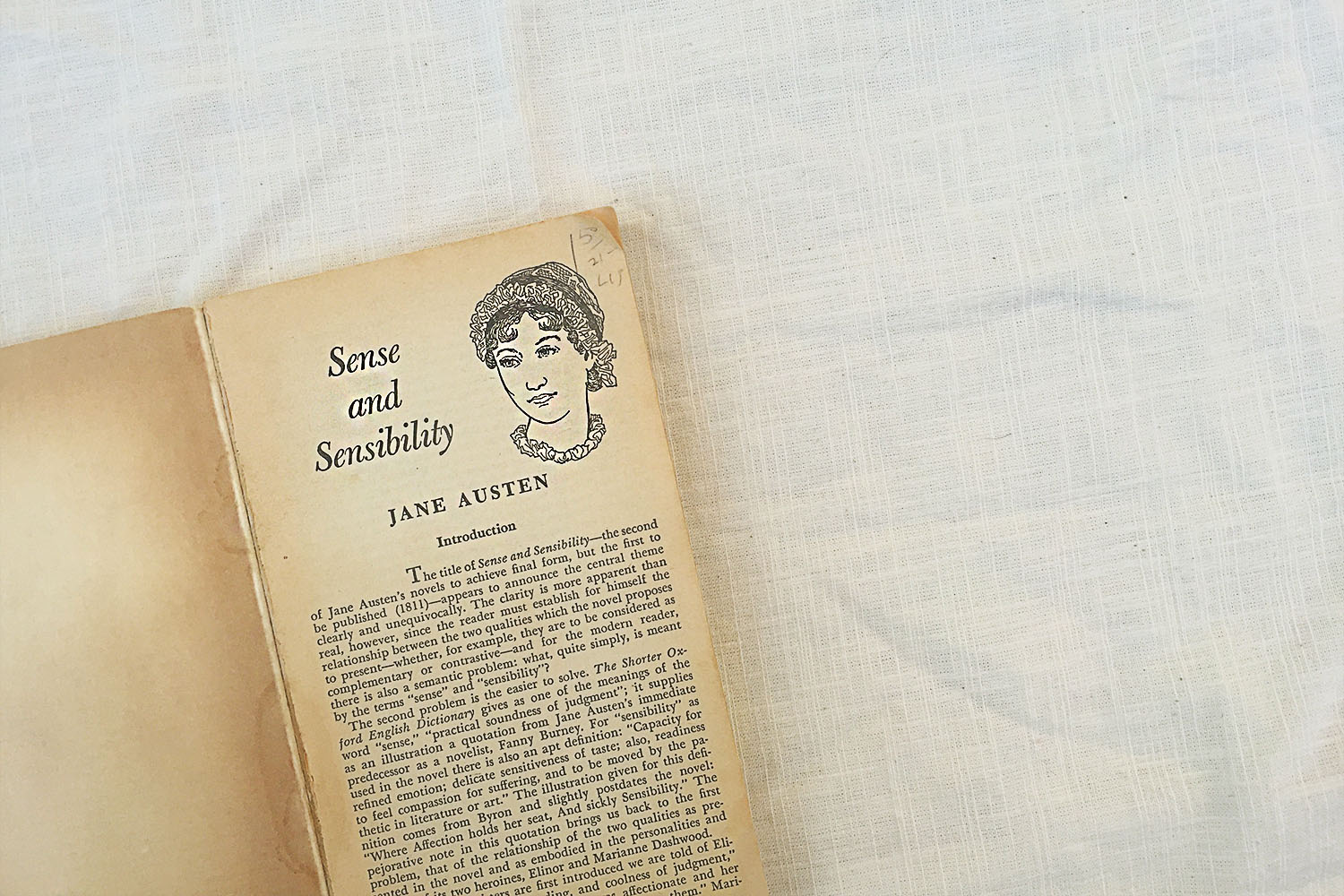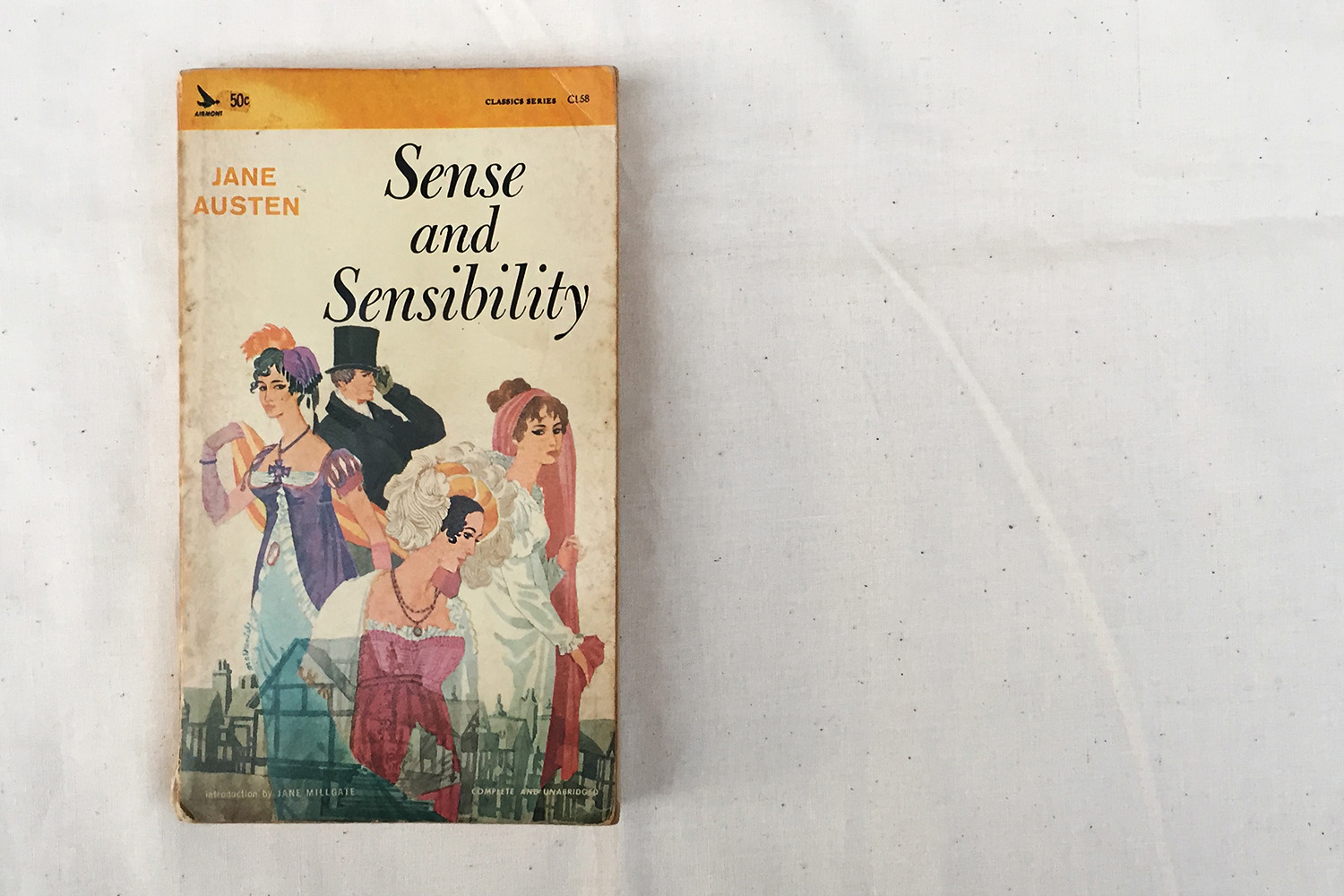
There are some books that strike me so deeply that I dread their inevitable end, especially considering that nothing beats the novelty of a first read. Given this, I was actually ready for Sense and Sensibility to reach its conclusion, though not due to any kind of disappointment. I loved it. The story is continuously surprising and observant of human behavior and folly. New characters are steadily introduced, adding freshness and much needed details to the intertwined story lines. I was eager to reach the story’s end simply because the Dashwood sisters, Elinor and Marianne, are miserable throughout, and I was anxious for them to find reprieve. Their misery is largely due to heartbreak, which does not come off as frivolous as you would imagine; partly because their emotions are so pure and heartfelt, and partly because they are women of the 18th century. There are few prospects beyond marriage, so a runaway suitor deals a particularly strong blow.
I assumed some version of happily ever after, though I assure you it’s a tame one, because I couldn’t imagine a young Jane Austen letting down the characters she so thoughtfully created. The Dashwood sisters are emotional and eloquent, two qualities that blend perfectly together. I looked up Austen and her work a number of times while reading Sense and Sensibility, and was left with the impression that the book is not a favorite among readers or critics. If that is the case, my expectations for the remainder of the Austen canon are sky high. Northanger Abbey is next.


 Sense and Sensibility
Sense and Sensibility


